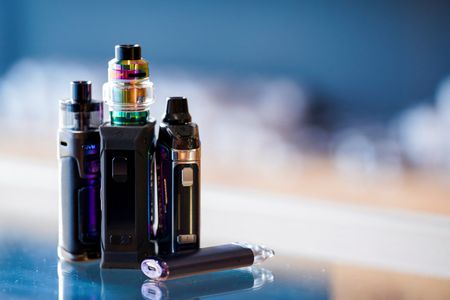SINGAPORE (Reuters) -Singapore will take a harder stance against drug-laced vapes from September as it changes the classification of anaesthetic agent etomidate from a poison to a drug, the government announced on Thursday.
Users of vapes laced with the substance will face a fine and mandatory rehabilitation of up to six months instead of just a fine, while importers of etomidate face up to 15 strokes of the cane and a maximum of 20 years in jail, up from a maximum of two years’ jail.
Vaping has been banned in Singapore since 2018 but authorities have not clamped down hard on the devices until recently, citing the emergence of drug-laced vapes.
The government said random testing of confiscated vapes in July found that one in three contained etomidate.
Vapes are “becoming delivery vehicles for harmful substances such as etomidate,” sa,id the health and home affairs ministries in a joint statement.
Singapore is known for stiff penalties for drugs, including the death penalty for drug trafficking.
The statement said etomidate poses serious harm to users, including adverse effects on the brain, adding that its use has been linked with cases of unnatural deaths, including a fatal accident.
The classification of etomidate as a drug will last for six months and serves as a placeholder for harsher penalties while the health ministry works on stricter laws planned to come into effect in the first quarter of 2026.
As part of Singapore’s attempt to fight what it calls the “scourge of vaping”, those found with regular vapes will also face higher penalties, including a mandatory rehabilitation programme.
Etomidate, also known as “space oil” in Hong Kong, was listed as a dangerous drug in Hong Kong and China as of February this year, according to the United Nations Office on Drugs and Crime in a report published in May.
It said the substance has also been found in vaping products in Indonesia and Thailand, with the latter also detecting ketamine and methamphetamine in some samples.
(Reporting by Xinghui Kok; Editing by David Stanway)








